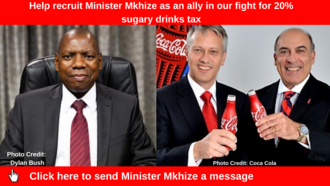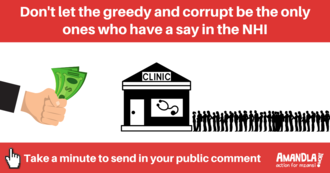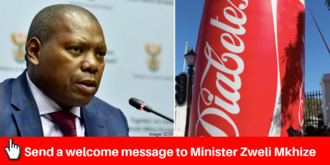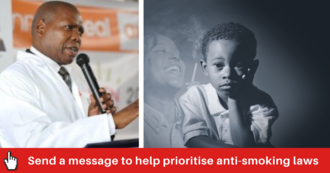- Featured
- Clean air
- Climate justice
- Consumer Rights
- Corporate Accountability
- Data access
- Early Childhood Development
- Economic fairness
- Education
- Electoral fairness
- Environmental justice
- Food justice
- Gender based violence
- Grants/social assistance
- Health
- Housing and infrastructure
- Industry interference
- Land Justice
- LGBTQIA+ rights
- Media/ information access
- Public transport
- Racism
- Reparations
- Safety
- Sanitation
- Service Delivery
- Sexual and Reproductive Rights
- Social justice
- Unemployment
- Womxn's rights/ gender equality
- Workers' rights
- More
-
Stop your alcohol ban court challenges and unite behind government's COVID-19 effortPut people before profit South Africans have emerged from the second wave of COVID-19 infections and deaths which started in November 2020 and drew to a close towards the end of January. One of the steps taken to reduce the spread of the virus and to limit unnecessary demand on hospital facilities was to suspend the transportation and sale of alcohol. This, together with other measures, helped to stem the virus, so much so that the infection and death rates are down and the suspension of access to alcohol has been limited. Health workers are exhausted. They are working hard and long hours to treat COVID-19 patients. They themselves are being infected by the virus, with some even losing their lives. They need our support. The temporary ban on the sale of alcohol offered them vital protection. South African Breweries (SAB), Vinpro (representing winemakers) and others have responded by going to court to challenge government’s right to suspend the transportation and sale of alcohol, even though the evidence shows that such suspensions, together with other measures like night-time curfews, have helped to stop the spread of the virus, to keep people in South Africa safe from alcohol-related harm, and to allow hospital workers to focus on COVID-19 cases. Although we support the right to protest and to use the courts to ensure rights are protected, we do not think these court cases are the solution to addressing our collective challenge in dealing with the pandemic. Since 2016, the South African government has had an updated National Liquor Policy and a draft Liquor Amendment Bill which contain new provisions for regulating the distribution and sale of alcohol. The Policy and the Bill are based on the World Health Organisation (WHO) Global strategy to reduce the harmful use of alcohol . The COVID-19 pandemic has shown that the harmful use of alcohol contributes disproportionately to the number of trauma admissions in hospitals across South Africa, especially over weekends. We are therefore in urgent need of permanent new measures to regulate alcohol in order to save lives, money and jobs. Only 31% of people in South Africa aged 15 and above actually drink alcohol. But, when they do, the majority of them drink heavily and in a way that is harmful to themselves and others. The alcohol industry depends on this binge-drinking to make their substantial profits, hence their resistance to the current ban and to alcohol regulation in general. OUR CALL TO INDIVIDUALS AND ORGANISATIONS IN CIVIL SOCIETY, AS WELL AS PUBLIC HEALTH WORKERS AND RESEARCHERS ** Help us send a message to SA Breweries, Vinpro and others, calling on them to drop their court actions because “our lives are more important than their profits”. ** Join us in assuring government that we all support their efforts to manage alcohol in the interests of protecting us from harm during the pandemic. ** Add your voice to the call for the urgent passing of the Liquor Amendment Bill as a major step forward in the ongoing struggle for a healthy and safe South Africa. The immediate adoption of the Bill will help to bring alcohol-related harm levels down by promoting safer drinking practices; it will also reduce the need for emergency alcohol sale suspensions now and in the future. THIS PETITION IS SUPPORTED BY SAAPA SA ALLIANCE PARTNERS, INCLUDING: Cancer Association of South Africa; Children's Institute; Gateway Health Institute; Gun Free South Africa; Hlanganisa Institute for Development in Southern Africa; Observatory Ratepayers Association; People's Health Movement; Smoking and Alcohol Harms Alleviation and Rehabilitation Association; South Africans Against Drinking and Driving; Teddy Bear Foundation for Abused Children; Yeoville Bellevue Ratepayers Association1,013 of 2,000 SignaturesCreated by Southern African Alcohol Policy Alliance in SA (SAAPA SA)

-
Minister Patel must make COVID-19 medicines accessible to all by taking steps to #FixThePatentLawsCOVID-19 is a global health crisis and one that affects working-class and poor people disproportionately. The world needs bold steps such as this that prioritise the needs of vulnerable populations above profits and above nationalism. Patents, and other intellectual property instruments, can act as obstacles to accessing medicines because they protect manufacturers from competition, keeping the prices of medicines high. This was the case with anti-retroviral therapies (ART) in South Africa in the early 2000s – when hundreds of thousands of people needlessly died because they could not afford the high prices of ART. We cannot allow the same thing to happen with COVID-19. Access to medicines is a critical component of the right to access healthcare. We stand behind our government in its efforts to ensure that developing and middle-income countries are not left behind while wealthy countries secure deals with pharmaceutical companies, and we need Minister Patel and President Ramaphosa to act with urgency to ensure that South Africa has an intellectual property regime that ensures equitable access to life-saving medical products now!524 of 600 SignaturesCreated by SECTION27 Life Esidimeni Family Committee and SADAG

-
Tell Netcare, Life Healthcare Group and Mediclinic to protect healthcare workers and save livesFrom 2016 to 2019, Netcare, Life Group, and Mediclinic paid out more to shareholders than they made in profits. They paid out R 19 billion in payouts to shareholders (dividends and share buybacks) in the same period they only made R11 billion in profits. This means that even when these companies were making losses, the shareholders continued to gain millions in wealth. Over the years the pay-outs to shareholders have come at the cost of better healthcare outcomes and better working conditions for healthcare workers. These companies need to step up and show they care about more than shareholder profits. In this time of crisis, we must prioritise the health and wellbeing of all South Africans not just those who are wealthy. Tell Netcare, Mediclinic, and Life that they need to stop shareholder payouts (dividends and share buybacks) till 2022 to ensure that all available resources are prioritized for free regular testing for all healthcare workers, and free medical attention for healthcare workers who contract Covid-19 and adequate (PPEs) for all healthcare workers working in South Africa in public and private facilities. This petition is co-signed by: Young Nurses Indaba Trade Union(YNITU); Oxfam SA; Public Services International (PSI); National Union of Care Workers of South Africa (NUCWOSA); Treatment Action Campaign (TAC); South African Federation of Trade Unions (SAFTU), and Amandla.mobi. Reference: A survey was conducted by Oxfam South Africa. Oxfam South Africa surveyed 166 healthcare workers for a month during the period of the 27 July 2020 to 27 August 2020 using two trade union’s databases: The Young Nurses Indaba Trade Union (YNITU) and National Union of Community Healthcare Workers of South Africa (NUCWOSA). The survey was sent via Whatsapp messages directly to the healthcare workers on the database. The survey was sent to healthcare workers in Gauteng, Western Cape, and the Eastern Cape. The survey respondents were mostly nurses (90%), permanent workers (88 %), 86 % in the public sector, and 10 percent in the private sector. A note on the low response rate from private-sector employees is that some respondents that they and their colleagues feared intimidation for participating in the survey. Figures from Department of Health South Africa 13 August 2020 and correct as of 21 August 2020. https://bhekisisa.org/resources/2020-08-14-health-workers-make-up-one-in-20-of-covid-19-cases-in-south-africa-new-data-shows/ Oxfam South Africa. (2020). The Right to Dignified Care Work is a Right to Dignified Health Care For All. https://www.oxfam.org.za/wp-content/uploads/2020/07/Oxfam_Care4Carers-Report_Final_20200701.pdf431 of 1,000 SignaturesCreated by Oxfam South Africa

-
Pledge Solidarity with Eastern Cape Community Health WorkersWe can no longer tolerate a situation where our state, far from being an example of good labour practice, is responsible for the casualisation of work and the exploitation of the mainly women workers who are leading grassroots healthcare provision in our communities. CHW’s demands, in the Eastern Cape and in the rest of the country, for secure employment and a living wage must be met, with immediate effect. We note the recent permanent employment of CHW in Gauteng as a step in the right direction and hereby demand an end to regional disparities in the pay, recognition and integration of CHW into the workforce of the National Department of Health.839 of 1,000 SignaturesCreated by Anneleen De Keukelaere
-
Demand Corona Relief Fund be set up for precarious workers during the LockdownPrecarious workers make use of mass transport systems (taxis and buses) to get to and from work, areas the WHO and National Department of Health have deemed as high risk for infection. Furthermore, domestic workers and health care workers work in intimate spaces with people who are at high risk of COVID-19 infection, such as the elderly and people who have travelled to and from high-risk countries. However, due to the legacy of inequality, we continue to live in, these are the very same workers who will not be paid – and cannot afford – to self-quarantine. Without income, they also cannot afford healthy food or medication, making them even more vulnerable. We commend the Government for communicating around COVID-19, however, gaps remain in addressing the anxiety, fear and stigma related to infection. On top of the fear of dying, vulnerable workers reside in communities where the potential is high for stigmatisation and discrimination in the event of self-quarantine or being identified as having the virus. We believe that a successful response to COVID-19 requires unity among all who live in South Africa, and we aim to be part of a unified solution. That unified response, however, requires Government to take bold and deliberate steps to ensure that the most vulnerable members of society are cared for and have their dignity and livelihoods secured. COVID-19 will exacerbate inequality among the working class of this country as they do not have the choice to ‘work from home’ and they are subject to ‘no work no pay’ labour conditions. This is compounded by the fact that domestic workers and informal workers particularly still do not have access to the Compensation for Occupational Injuries and Diseases Act (COIDA) that other COVID-19 affected formal workers have. This means that domestic workers and informal workers cannot claim compensation in the event that they contract COVID-19 while at work. Given that we are officially under a national state of disaster, Mr President, we call for expedited access to the Unemployment Insurance Fund (UIF) for domestic workers and informal workers.830 of 1,000 SignaturesCreated by Coalition of Unions, Formal and Informal Workers, Organisations, Activists and other Allies
-
Extend submission date for the National Youth Policy 2020It is important for young people to inform the national youth policy as the policy directly impacts them and their development trajectory In addition, encouraging youth participation in the policy making process helps in nation building and active citizenship199 of 200 SignaturesCreated by Nelisa Ngqulana
-
Minister of Finance Enoch Godongwana must include 100% fruit juices in Sugary Drinks Tax100% fruit juice is not 100% good for us. But this is not what fruit juice companies want us to know. They want us to continue buying their unhealthy products, thinking they’re healthy when they’re really not. Just one 250ml glass of 100% fruit juice is equal to 6.5 teaspoons of sugar [1]. This is more sugar than what the World Health Organisation (WHO) says we should have everyday [2]. It’s important these unhealthy beverages are treated the same as cold-drinks by including 100% fruit juices in the Sugary Drinks Tax. Add your name and join the call on Minister of Finance Enoch Godongwana to help save lives. If enough of us come together now and join this campaign, Minister Godongwana may have no choice but to listen and protect public health. Together with our friends at Heala we have been campaigning for the Sugary Drinks Tax since 2016 and thanks to our people power and the public pressure we have put on the Minister of Finance, we have secured a Sugary Drinks Tax of 11%. The Sugar Cane Growers Association is fighting back by saying a higher Sugary Drinks Tax is irresponsible [3], but really the truth is Treasury is not doing enough to fight the crisis of NCDs that is damaging so many South African families. This is irresponsible. Minister of Health Zweli Mkhize, when talking about this crisis, said, “Every South African has been affected by diabetes- whether directly or indirectly. For those who have experienced or witnessed the complications of this deadly disease, it can be devastating and disruptive for families and communities.” [4] It’s time for 100% fruit juices to be seen as the unhealthy, potentially dangerous beverage they are by giving them the same treatment as cold-drinks. Add your name to join the campaign. Let’s come together and force Minister Godongwana to put the health of the public before the greed and profits of sugary drinks companies. [1] Is Fruit Juice as Unhealthy as Sugary Soda?, Alina Petre, MS, RD for Healthline December 2019 [2] World Health Organization lowers sugar intake recommendations, Ryan Jaslow for CBSNEWS March 2014 [3] LETTER: Sugar tax is killing jobs, Rex Talmage for Business Day February 2020 [4] World Diabetes Day: There’s no winning without family, Dr Zweli Mkhize for Health E November 20196,262 of 7,000 SignaturesCreated by HEALA

-
Help recruit Minister Mkhize as an ally in our fight for 20% sugary drinks taxLast year, when Dr Zweli Mkhize was appointed as our new Minister of Health, we ran a welcome campaign to help ensure the fight against non-communicable diseases (NCDs) was high on his agenda. Late last year Minister Mkhize attended a Diabetes awareness event where he was asked if he supports the World Health Organisation’s recommended 20% sugary drinks tax. His spokesperson Dr Lwazi Manzi responded stating that Minister Mkhize supports the principle of the sugary drinks tax. Dr Manzi said that: “The minister cannot proclaim on the actual number as that is the business of Treasury [but] he supports the principle of the sugar tax,” [1]. So what does this mean for our campaign? The good news is that the minister has not only acknowledged that diabetes needs to be priority, but he has also stated that reducing sugar in drinks and consumable foods is important. This sends a message that the minister of health could be an ally. We need all the allies we can find because we are up against greedy companies like Coca Cola who want to protect their profits and are fighting against the sugary drinks tax. Minister Mkhize may do more to support a stronger sugary drinks tax if we show him that there is enough public support. If enough of us come together and send messages of support, it could help convince him to use his position as a member of Cabinet to call on Treasury to increase the sugary drinks tax to 20%. With Finance Minister Tito Mboweni preparing to deliver his Budget Speech on the 26th of February, we have a window of opportunity to recruit Health Minister Mkhize to convince Treasury to put our nation's health first. In the words of the Health Minister, “Every South African has been affected by diabetes- whether directly or indirectly. For those who have experienced or witnessed the complications of this deadly disease, it can be devastating and disruptive for families and communities.” [2] Let’s make sure Minister Mkhize knows that if he’s serious about fighting NCDs, he will have to implement a stronger sugary drinks tax. [1] https://health-e.org.za/2019/11/19/health-minister-supports-the-reduction-of-sugar-in-sweetened-beverages/ [2] https://health-e.org.za/2019/11/14/world-diabetes-day-2019/71 of 100 SignaturesCreated by Khaliel Moses
-
Demand a NHI that works for the peopleRight now right-wing groups like Afriforum and some people with medical aids, are mobilising in large numbers to try to stop the NHI. We can’t afford to let the rich try to stop the NHI which could improve the lives of the majority. We also can’t afford an NHI that fails our people. The NHI is not perfect, as seen in the pilot sites. This is why it is more important than ever to make our voices heard and with enough public submissions, shape the NHI to serve the health needs of the majority of people in South Africa. If enough of us come together, our public submissions could help ensure that the NHI is not captured by medical aids or greedy capital. While also demanding the NHI is accountable and provides quality health services free from corruption, patronage and mismanagement. The amandla.mobi team are not health experts. But what we have done is read expert submissions and identified key recommendations that reflect the values of the amandla.mobi community. That’s why we have created this progressive submission you can use when sending in your own submission. https://youtu.be/ccfj30DK0wc177,651 of 200,000 SignaturesCreated by amandla.mobi

-
Tell our new Health Minister we want a stronger sugary drinks taxIn 2017 thousands of us came together to stop the likes of Coca-Cola trying to stop the sugary drinks tax. While the beverage industry watered down the sugary drinks tax, we won our campaign to get the tax implemented. With a new Health Minister, Dr Zweli Mkhize, we have an opportunity to get his attention and call on him to take strong action against Non-Communicable Diseases through supporting our call to increase the sugary drinks tax to 20%. Let’s get Minister Mkhize’s attention. If enough of us come together and send him welcome messages, it could get the new Minister to make protecting the sugary drinks tax from industry a priority and increase it to 20%. It only takes a minute to send the pre-written message to Minister Mkhize, but if you could add a personal message, our welcome will be even more powerful. Excessive sugar intake causes increased risk of diabetes, liver and kidney damage, heart disease, and some cancers. Tackling Non-Communicable Diseases needs to be a national priority, and increasing the tax on sugary drinks is a first step in addressing this national epidemic. The new Minister of Health, Dr Zweli Mkhize, has a history of doing important life-saving work on HIV in KZN. He could be an important ally if he pledges his support to increase he sugary drinks tax and could help protect it from industry. Send a direct welcome message to Minister Mkhize and make sure he joins us in our fight to make the food we eat healthy. If we flood his mailbox with welcome messages, he’ll have no choice but to prioritise protecting the sugary drinks tax from industry and increase it to 20%. When Coca-Cola tried to stop the Sugary Drinks Tax from happening with dodgy research on job losses and pressuring our elected leaders - we came together and stood against their bullying. From fighting greedy corporations to lobbying MPs to protect the tax- we’ve shown that our people power works. Let’s come together again and make sure the Sugary Drinks Tax is here to stay. [1] Junk food, junk status cause skyrocketing medical costs, Health-e News for The Daily Maverick April 24 201766 of 100 SignaturesCreated by amandla .mobi Member

-
Tell the new Minister of Health to make anti-smoking laws a priorityLast year thousands of amandla .mobi members came together and sent the Department of Health submissions in support of the Draft Tobacco Control Bill to ban public smoking, regulate e-cigarettes and other tobacco control regulations. The Department of Health is finished reading our submissions and the process has slowed down once again. But, with the appointment of a new Minister of Health, we have an opportunity now to put pressure on the department. We can make sure one of the first decisions the new Health Minister makes is prioritising the bill. Let’s get Minister Mkhize’s attention. If enough of us come together and send him welcome messages, it could get the new Minister to help make these overdue anti-smoking laws a reality. Sign the petition to send Minister Mkhize a message. It only takes a minute to send the pre-written message but if you could add a personal message, our welcome will be even more powerful. Each year South Africa spends more than R59 billion to address tobacco related illnesses like lung cancer, emphysema, asthma and bronchitis [1]. At the same time the country only collects between R11 billion and R13 billion from tobacco taxes [2]. This means the South African taxpayer is paying for the healthcare bill of tobacco-related harm while the tobacco industry collects the profits. Our queues at clinics and hospitals keep getting longer and government keeps cutting the healthcare budget while cigarette companies make billions. But, the new Minister of Health, Zweli Mkhize, has a history of doing important life-saving work on HIV in KZN. He could be an important ally in our fight against big cigarette companies. Sign the petition to send Minister Mkhize a welcome message and make sure he joins us in our fight to keep South Africans safe from second-hand smoke. If we flood his mailbox with welcome messages, he’ll have no choice but to support and prioritise the new anti-smoking laws. We’ve taken the Draft Tobacco Control Bill from sitting on a shelf collecting dust, to nearly being implemented by the Department of Health. The people power we’ve built has brought us this far but it’s important we keep up the pressure until the bill is signed. [1] The Tobacco Atlas - South Africa [2] BAT revenue rises but profit and market share fall, Robert Laing for Bizcommunity July 201756 of 100 SignaturesCreated by amandla mobi member

-
Demand for MEC Simelane-Zulu to supply Hormone Replacement Therapy at King Edwards VIII HospitalKwaZulu-Natal is South Africa’s second most densely populated province [5]. King Edward VIII Hospital is a tertiary level hospital providing services to the whole of KwaZulu-Natal and parts of the Eastern Cape [6]. The hospital currently does not offer any transgender programs with free distribution and access of hormones. Our objective is for them to do so by making it accessible to people as it currently only available in two provinces (Gauteng and Western Cape) in South Africa. Transgender people are defined as those whose personal identity and gender does not correspond with their birth sex [4]. Implementation of gender-affirming services proves to be scarce and difficult in our country [2]. Section 9 of the Constitution prohibits discrimination, among others on the grounds of gender [1]. The Alteration of Sex Description and Sex Status Acts (2003) corresponds with our constitutions laws which permits one to change the sex description on their birth record under certain circumstances [4]. Hormone replacement therapy (HRT) acts as a very vital part for transgender people to feel more like themselves. Since transgender men and woman will never be able to produce these hormones naturally, HRT is a lifelong treatment that needs to be used recurrently, similarly to chronic medication. People take either the hormone Oestrogen or testosterone with other drugs to help them attain the physical characteristics that society ascribes to the gender they identify with. Examples of this treatment include the development of breasts for transgender woman by taking the hormone Oestrogen whilst Testosterone aids masculinity advances for transgender men [3]. Trans South African you-tube Vlogger Glow Mamiii shares her personal journey on the struggles of gaining access to HRT. She began seeking treatment at Chris Hani Baragwanath (Soweto) but was told she would have to wait 3 months for them to administer the HRT. She then opted to seek treatment from a private doctor which not many people can afford as medical aids don’t cover gender-affirming treatments such as HRT and surgeries. She reveals her struggle of finding a trans-friendly private practitioner as well as her personal details regarding the bodily changes, psychological and emotional distresses she experienced on HRT [7]. During her psychiatric consultations and psychotherapy meetings she speaks out against being diagnosed with gender dysphoria as transgenderism is classified as a gender dysphoria disorder [8]. Johannesburg based media-advocacy organization Iranti published a press release from the World Health Organization which removes mental illness from Trans Diagnoses [9]. Medical aid schemes don’t cover gender-affirming treatments such as HRT and surgeries as they are considered “lifestyle choices” which leaves trans people with the burden of covering these costs [1]. HRT can cost up to R800 a month adding up to almost a quarter of a million rand on medication [3]. 15% of transgender people are living in poverty compared to 4% of the general population. 19% of transgender people report lacking any form of health insurance including medical aid [6]. Studies show that access to gender-affirming treatment helps reduce thoughts of self-harm and suicide among transgender people. The only public hospitals that offer trans-specific healthcare services in South Africa are [4]: • Chris Hani Baragwanath (Soweto) • Steve Biko (Pretoria) • Groote Schuur (Cape Town) • Helen Joseph (Johannesburg) Treatments are often limited and dependent on how close you live to the facility and the lengths of their waiting lists. The treatment entails regular check-ups and to ensure correct dosage. Withdrawals from HRT lead to severe psychological and emotional distress like gender dysphoria, depression, anxiety and fatigue. [1] https://www.2oceansvibe.com/2018/10/26/healthcare-medical-aid-and-the-transgender-struggle-in-south-africa/ [2] https://bhekisisa.org/article/2018-10-26-00-tips-for-finding-a-trans-friendly-healthcare-provider [3] https://bhekisisa.org/article/2018-10-26-00-the-high-cost-of-being-yourself-transgender-healthcare-and-private-medical-aids [4] https://www.sowetanlive.co.za/s-mag/2019-04-05-conversations-transgender-healthcare-in-crisis/ [5] https://www.southafricanmi.com/population-density-map.html [6] http://www.kznhealth.gov.za/kingedwardhospital.htm [7] https://youtu.be/WXYiZK0l6mc [8] https://youtu.be/CpCwS177WhU [9] http://www.iranti.org.za/169 of 200 SignaturesCreated by Mamello Mofokeng
.png)

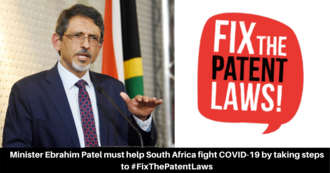
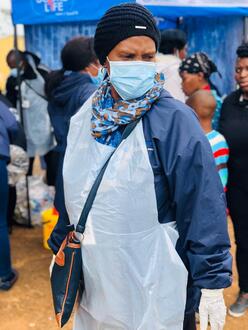.jpeg)

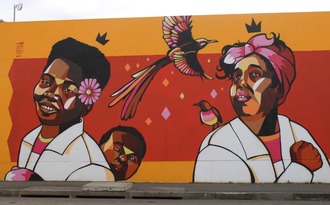
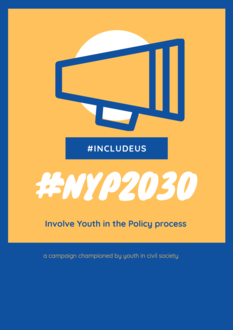
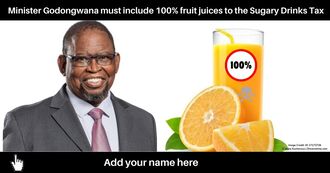.jpg)
